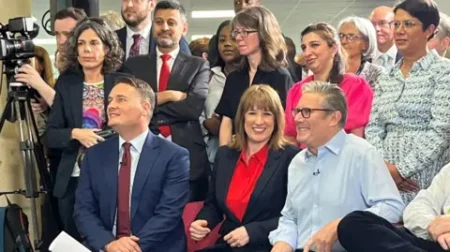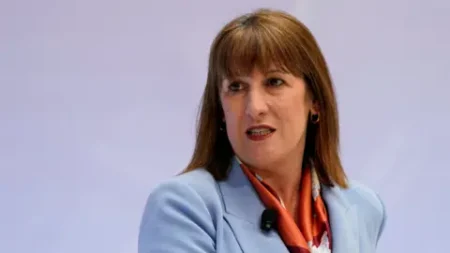On Wednesday, a declassified CIA memo emerged that cast doubt on the conclusions drawn by American intelligence agencies regarding Russia’s interference in the 2016 presidential election. According to this memo, which was commissioned by CIA Director John Ratcliffe—a known ally of former President Donald Trump—the findings challenge the assertion that the Russian government, under the direction of President Vladimir Putin, orchestrated a covert campaign to support Trump’s electoral victory. This document is integral to the ongoing narrative that Trump and his close associates have been promoting as part of their attempt to reshape the public’s understanding of the now-concluded Russia investigation.
The intelligence assessment in question dated back to 2017 and claimed that Russia sought to bolster Trump’s chances against Democrat Hillary Clinton. However, the newly released memo does not take into account the array of investigations that have independently corroborated the original assessment’s conclusions. Noteworthy among these is a report from the Senate Intelligence Committee, which was dominated by Republicans in 2020, establishing similar findings about Russian interference and its motivations.
The eight-page report also reflects a broader, concerted effort by Trump and his close aides—who currently occupy significant government positions—to reexamine the circumstances and outcomes of the Russia investigation. This investigation, which led to numerous criminal indictments, significantly shadowed Trump’s initial term in office. It fostered a climate of unresolved grievances that fed into Trump’s profound skepticism of the intelligence services, which he perceived as adversarial to his administration.
The memo emerges from a structured review that Ratcliffe initiated in May, intended to critique the methodologies and decision-making processes employed by the intelligence community when they formulated the 2017 assessment. A critical focus of this review was the assertion that Putin had an agenda to assist Trump in securing electoral success, which the authors of the report argue was affected by several “anomalies.” These irregularities included an expedited timeline and reliance on unverified sources, notably a dossier compiled by former British spy Christopher Steele—funded by Democrats—that contained uncorroborated allegations concerning Trump’s business dealings.
Particularly damning was the report’s contention regarding the two-page summary of the Steele dossier that was included in the intelligence assessment. The authors described this as a contentious decision made by the FBI, arguing it elevated unconfirmed claims to a status that lent them credibility, thereby undermining the analytical integrity of the final judgment.
However, while Ratcliffe has scrutinized the judgment of top intelligence officials for operating within what he terms a “politically charged environment,” the report itself does not directly counter any existing intelligence conclusions regarding Russia’s interference. Various intelligence assessments have chronicled the nature and extent of Russia’s activities to influence the election, with findings from the Senate Intelligence Committee and Special Counsel Robert Mueller’s report both affirming that Russia actively sought to assist Trump.
Experts in the field, such as Brian Taylor, Director of the Moynihan Institute of Global Affairs at Syracuse University, have remarked that the release of this report does not alter any existing evidence or findings. Instead, Taylor argues that this memo appears to be more of a tool intended to bolster Trump’s narrative that the investigations into his ties with Russia stemmed from a conspiracy orchestrated by Democrats.
He further pointed out that the role of intelligence analysts is to provide truthful assessments, even if it runs counter to what political leaders may wish to hear. Deviating from this practice can result in skewed judgments and failures in decision-making. It should also be noted that while intelligence agencies typically execute after-action reviews to derive lessons from their operations, it’s quite atypical for such evaluations to be made public in a declassified format.
In a broader context, Ratcliffe has signaled a commitment to release various materials related to public debates. To date, he has declassified significant information, including aspects of the investigations into the assassinations of President John F. Kennedy and his brother, Senator Robert F. Kennedy, as well as inquiries regarding the origins of COVID-19. Through these actions, Ratcliffe emphasizes transparency while also purporting to redirect public understanding of critical historical events, particularly those linked to the contentious landscape of American politics and governance.











